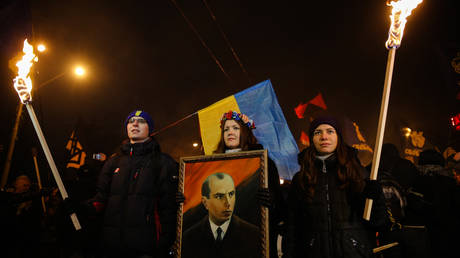World News
Pushkin Monument Demolished In Kiev

World News
Biden Urges Congress To End Impasse And Send Aid To Israel And Ukraine
World News
After The Hurricane
World News
Brazil Football Legend Romario Announces Comeback At 58
-

 Health1 year ago
Health1 year agoInternational Blood Bank for the Unvaccinated has been Formed with Members from at Least 16 countries – Demand for “Pure Blood” Skyrockets
-

 Health1 year ago
Health1 year agoOpenly Gay Prince Turned Palace Into Safe Haven For LGBTQ+ Indians | The Optimist Daily
-

 English1 year ago
English1 year agoLife Force Network News English Transcript – White Paper Protests
-

 World News2 years ago
World News2 years agoAustralian National Review – McIntyre Report Political Talk Show- Episode 148, Elon Musk Now The Enemy Of Ukraine For Suggesting Peace,Australian PM Send $500 Million More To Nazis In Ukraine Without Voters Permission,Covid Vaccine Cover Up Failing,WW3 Being Pushed By Biden's Masters – Part 2
-

 World News2 years ago
World News2 years agoAustralian National Review – McIntyre Report Political Talk Show- Episode 148, Elon Musk Now The Enemy Of Ukraine For Suggesting Peace,Australian PM Send $500 Million More To Nazis In Ukraine Without Voters Permission,Covid Vaccine Cover Up Failing,WW3 Being Pushed By Biden's Masters – Part 1
-

 Life Force Now2 years ago
Life Force Now2 years agoLife Force Network News-UK False Data
-

 Life Force Original Content2 years ago
Life Force Original Content2 years agoSpeak Up News Part 1
-

 Life Force Original Content2 years ago
Life Force Original Content2 years agoSpeak Up News Part 2









